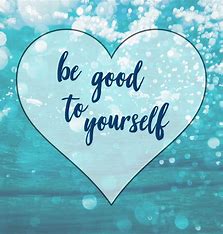We hear the term self-care everywhere these days. It's splashed across social media alongside bubble baths, candles, and motivational quotes. And while those things can be lovely, true self-care runs so much deeper.
Self-care isn’t just about pampering. It’s about preservation.
It’s how we stay grounded, connected, and functional in a world that often asks too much and gives too little in return.
This blog is here to remind you: You matter. And your needs are not a burden.
🌿 What Is Self-Care, Really?
Let’s define it simply:
Self-care is the intentional act of tending to your physical, emotional, mental, and spiritual wellbeing.
It’s not one-size-fits-all. For some, it’s therapy or rest. For others, it’s saying “no” or choosing a nourishing meal over fast food. It’s about checking in and asking: What do I need, really?
Self-care is personal. It’s also powerful.
🚨 Self-Care Isn’t a Luxury—It’s a Necessity
If you were raised to value productivity, people-pleasing, or pushing through, you might struggle with self-care. Maybe you were taught to:
- “Keep going no matter what”
- “Be strong for others”
- “Put yourself last—it’s more noble”
But burnout is not a badge of honour. Resentment is not a healthy fuel. And exhaustion doesn’t equal worth.
You can’t pour from an empty cup. Self-care fills you up—so you can live, love, work, and serve sustainably.
🧠 The Four Pillars of Self-Care
Let’s break it down. Sustainable self-care touches on four core areas:
1. Physical
- Sleep, rest, and movement
- Nourishing food and hydration
- Health check-ups and medication
Ask: What does my body need right now?
2. Emotional
- Naming and honouring your feelings
- Letting yourself cry, laugh, rest, or vent
- Speaking your truth instead of bottling it
Ask: What am I feeling, and what do I need in response to it?
3. Mental
- Taking breaks from overstimulation (phones, news, etc.)
- Setting boundaries around work and relationships
- Allowing quiet time for reflection, reading, or mindfulness
Ask: What’s taking up mental space—and how can I ease it?
4. Spiritual
- Connecting with something bigger than yourself (nature, creativity, faith)
- Practising gratitude
- Making space for stillness and presence
Ask: What gives my life meaning—and how can I connect to it today?
🔁 Daily Micro-Self-Care
Self-care doesn’t have to mean a spa day or a week off work. It can be small, consistent actions that build emotional resilience.
Try these:
- 2 minutes of deep breathing before a meeting
- Drinking water first thing in the morning
- Putting your phone away for an hour
- Saying “no” without over-explaining
- Taking a guilt-free nap
- Texting a friend, just because
Tiny habits make a big difference over time.
🧱 Boundaries: The Foundation of Self-Care
One of the most powerful forms of self-care is setting and keeping boundaries.
- Saying no when you’re depleted
- Leaving the WhatsApp group that stresses you out
- Not explaining your choices to people who won’t respect them
- Letting go of relationships that drain rather than nourish you
Boundaries aren’t walls—they’re fences with gates. They protect your peace and let in only what you choose.
🫶 Self-Care for the Neurodivergent or Burnt-Out
If you live with ADHD, autism, chronic illness, or mental health challenges, self-care might not look “typical”—and that’s okay.
It might be:
- Masking less and stimming more
- Creating sensory-safe environments
- Using timers and reminders to eat or rest
- Giving yourself permission to do less or be messy
Radical self-acceptance is self-care, too.
💬 Final Thoughts
Self-care isn’t about escaping your life. It’s about returning to yourself.
Tuning into what you need. Reclaiming time and space. Choosing yourself—even when the world says you shouldn’t.
Here’s your reminder:
- You don’t need to earn rest.
- You don’t need to apologise for your limits.
- You deserve softness, nourishment, and peace.
Self-care is not selfish. It’s how you survive.
And even more than that—it’s how you begin to thrive.
